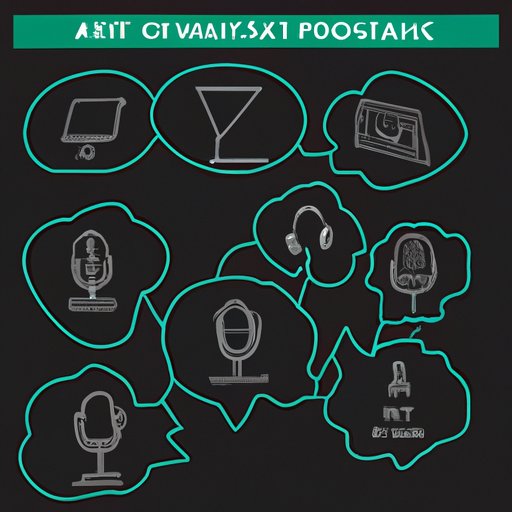
How to Start a Podcast and Make Money
Are you interested in starting a podcast? With the right knowledge and strategies, creating a profitable podcast can be a straightforward and achievable endeavor. In this article, we will explore the essential steps required in setting up a podcast, how to maximize your audience reach, and monetize your podcast for financial gain. Whether you’re a beginner or an experienced podcaster, this guide will serve as a helpful resource in creating a successful podcast.
Get Started
The first step in creating a podcast is determining the subject matter and audience. After establishing the purpose of the podcast, the technical requirements must be considered. To start podcasting, a microphone, headphones, audio recording software and a hosting platform are needed. Platforms such as Buzzsprout, Buzzsumo, and Anchor are easy to use, affordable, and have excellent user ratings. Upon setting up an account, creating a cover art and a brief podcast description are necessary. After adding a few interesting episodes, sharing your podcast through multiple channels, including social media, email lists, and content promotion platforms, can facilitate audience growth.
Experts and Guests
An excellent way to enhance your podcast’s content is to invite guests with a deep understanding of the topic matter. The right guest can add value and help attract new listeners, resulting in a bigger audience. Whether interviewing an author, expert in a specific field, or an industry influencer, a guest adds diversity to the podcast and makes it more exciting. By providing insight, discussing ideas, and building relationships with guests, collaboration and cross-promotion can result in profitable partnerships for the podcast.
Monetization Ideas
After building a loyal audience, monetizing a podcast is the next logical step. Direct ad insertion is a popular strategy where the host reads a 15-60 second ad for the advertiser; affiliate marketing, promoting other products related to the podcast’s topics and gaining a commission fee; sponsorships, where a company directly supports the podcast; merchandise, such as t-shirts and mugs, with the podcast logo; and utilizing paid podcast membership platforms such as Patreon. Each monetization strategy has its unique advantages and disadvantages, and choosing the best option depends on the podcast’s size, audience engagement, and monetization goals.
Efficient Promotion
Attracting and sustaining a broader audience requires effective promotion strategies. Guest appearances from other podcasts or blogs, social media platforms such as Facebook, Instagram and Twitter, shareable blogs or articles on relevant topics, proper Search Engine Optimization using keywords, and even paid advertising are all effective ways to promote a podcast. Promotion also requires regular engagement with listeners through comments, feedback, or active participation in discussions.
Make it Engaging
Interacting with the audience is a crucial factor in keeping a podcast engaging, interactive, and exciting. Polls, trivia, answering questions on air, and dedications from listeners add to the listener experience and keep it fresh, and the listeners coming back for more. Using social media to start a conversation or debate on a podcast topic can provide compelling content to be used in the podcast episode, while also keeping the listeners engaged and included.
Consistency is Key
The consistency of podcast publication is a significant factor in profitability. Consistency means posting on time; it requires a dedicated schedule, dedicating the necessary time for each episode, and ensuring quality content with each episode uploaded. To maintain consistency, it’s important to plan ahead and use tools like creating a content calendar to stay on track in the editing, recording, and content creation process. Consistency builds credibility and trust with listeners and can turn them into loyal followers who will recommend the podcast to others.”
Conclusion
Starting a podcast is an excellent way to connect with an audience, share knowledge, and create profitable relationships. We have covered the technical requirements, the importance of collaborating with guests, monetization strategies, promotion, audience engagement, and consistency measures. The core takeaway is that building a successful podcast is not a linear process but involves using all the resources available to create engaging, valuable content for the audience. Armed with a passion for the topic matter and a will to succeed, starting a podcast can be a straightforward path to financial success.




